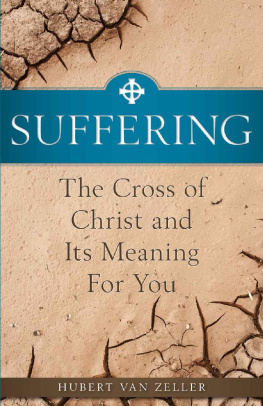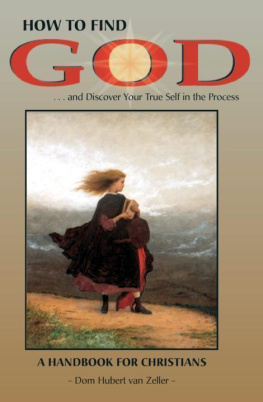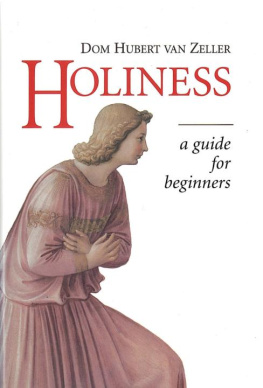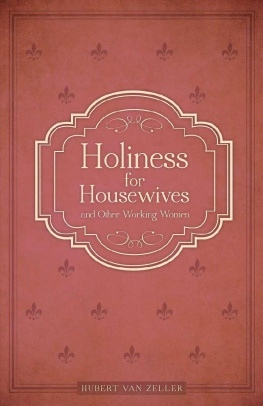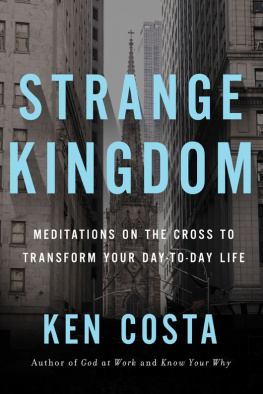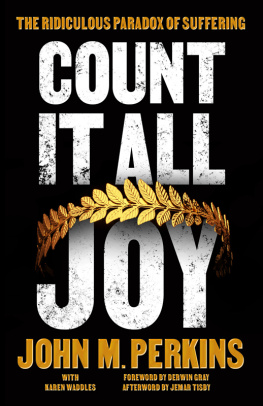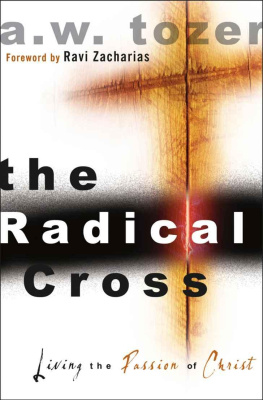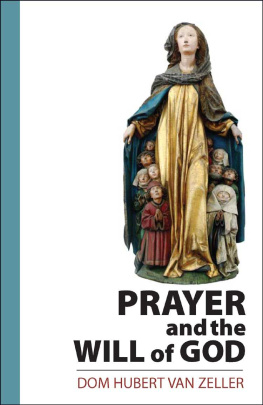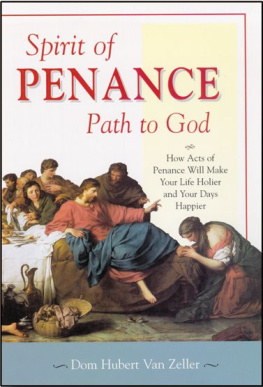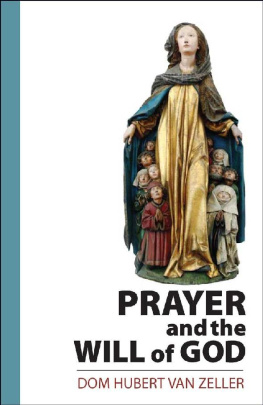Hubert van Zeller - Suffering: The Cross of Christ and Its Meaning for You
Here you can read online Hubert van Zeller - Suffering: The Cross of Christ and Its Meaning for You full text of the book (entire story) in english for free. Download pdf and epub, get meaning, cover and reviews about this ebook. year: 2013, publisher: Sophia Institute Press, genre: Religion. Description of the work, (preface) as well as reviews are available. Best literature library LitArk.com created for fans of good reading and offers a wide selection of genres:
Romance novel
Science fiction
Adventure
Detective
Science
History
Home and family
Prose
Art
Politics
Computer
Non-fiction
Religion
Business
Children
Humor
Choose a favorite category and find really read worthwhile books. Enjoy immersion in the world of imagination, feel the emotions of the characters or learn something new for yourself, make an fascinating discovery.
- Book:Suffering: The Cross of Christ and Its Meaning for You
- Author:
- Publisher:Sophia Institute Press
- Genre:
- Year:2013
- Rating:3 / 5
- Favourites:Add to favourites
- Your mark:
- 60
- 1
- 2
- 3
- 4
- 5
Suffering: The Cross of Christ and Its Meaning for You: summary, description and annotation
We offer to read an annotation, description, summary or preface (depends on what the author of the book "Suffering: The Cross of Christ and Its Meaning for You" wrote himself). If you haven't found the necessary information about the book — write in the comments, we will try to find it.
Suffering: The Cross of Christ and Its Meaning for You — read online for free the complete book (whole text) full work
Below is the text of the book, divided by pages. System saving the place of the last page read, allows you to conveniently read the book "Suffering: The Cross of Christ and Its Meaning for You" online for free, without having to search again every time where you left off. Put a bookmark, and you can go to the page where you finished reading at any time.
Font size:
Interval:
Bookmark:
Suffering: The Catholic Answer
The Cross of Christ and Its Meaning for You
Dom Hubert van Zeller
SOPHIA INSTITUTE PRESS
Manchester, New Hampshire
Suffering: The Catholic Answer: The Cross of Christ and Its Meaning for You was originally published in 1961 by Sheed and Ward, New York, under the title Approach to Calvary. This 2002 edition by Sophia Institute Press, published with the permission of Downside Abbey, includes minor editorial revisions and does not include the illustrations in the original edition.
Copyright 1961 Sheed and Ward; 2002 Downside Abbey
Printed in the United States of America
Cover design by Lorraine Bilodeau
On the cover: Rippled Sand Dunes, Stone/Art Wolfe.
No part of this book may be reproduced, stored in a retrieval system, or transmitted in any form, or by any means, electronic, mechanical, photocopying, or otherwise, without the prior written permission of the publisher, except by a reviewer, who may quote brief passages in a review.
Sophia Institute Press
Box 5284, Manchester, NH 03108
1-800-888-9344
www.SophiaInstitute.com
Nihil obstat:
A. M. Young, O.S.B., Censor Congreg. Angliae
December 17, 1959
Imprimatur:
H. K. Byrne, O.S.B., Abbas Praes.
December 22, 1959
Nihil obstat:
John R. Ready, Censor librorum
The commonsense book of Catholic prayer and meditation / Hilda Graef.
p. cm.Rev. ed. of: God in our daily life. 1951.
Includes bibliographical references.
ISBN 1-928832-51-2 (pbk. : alk. paper)
1. Christian life Catholic authors. I. Title: Common sense book of Catholic prayer and meditation. II. Graef, Hilda C. God in our daily life. III. Title.BX2350.3 .G72 2002
248.482dc212002000075
Other books by
Dom Hubert van Zeller from
Sophia Institute Press :
Holiness: A Guide for Beginners Holiness for Housewives
Approach to Penance How to Find God
To Nicolas, for whom the Stations of the Cross have a special meaning
Editors note: The biblical quotations in the following pages are taken from the Douay-Rheims edition of the Old and New Testaments. Where applicable, quotations have been cross-referenced with the differing names and enumeration in the Revised Standard Version, using the following symbol: (RSV =).
Preface
This book considers problems connected with suffering as a whole: why there has to be pain, how it justifies itself, what we are expected to do about it.
Since the answer to all this is to be found in the Passion of Christ, it seemed suitable to relate particular aspects of human suffering to particular incidents of Christs experience. The method has not everywhere been closely followed, but for the most part, the questions that puzzle people with regard to suffering will be examined in the light of one or another station.
In this connection it is worth noting that when the Way of the Cross was first introduced, the faithful began with the Resurrection and worked backward toward the Condemnation. Thus, to the Christian of the fourteenth century, the whole business of suffering was seen to take its cue from the mystery that frees from suffering. This is highly significant. Suffering, ours as well as Christs, is to be understood in terms of its sequel. The clearer our vision of sufferings consequence, the truer will be our appreciation of sufferings cause.
Jesus is condemned to death
Remember that suffering cannot extinguish happiness
God does not condemn man to suffering; man condemns himself to suffering. God tells man what is needed for happiness, and, in refusing Gods terms, man condemns himself to unhappiness. This happened in the beginning, when Adam turned down the happiness that was his for the taking, and it has happened ever since, when the sons of Adam turn down the conditions on which happiness may be enjoyed.
If there is a difference between Adams case and ours, it is that the conditions are more explicitly formulated now than they were then. Christ has told us the secret of His happiness in the Father. The only happiness that is proof against suffering is the happiness that Christ came on earth to bring.
Suffering is powerless to extinguish the happiness that is conditioned by faith and hope. Why? Because faith and hope are evidence of the love that accepts the essential condition of being obedient to Gods will. Original Sin condemns man to suffering; actual sin condemns man to suffering; mistaking pleasure for happiness condemns man to suffering. If man thinks he can make better rules for happiness than those laid down by God, he must bear the consequences of his arrogance: he must bear the weight of suffering.
In the choice between the peace that God guarantees a peace that spells happiness even in this life, let alone the peace that spells happiness in the next and that which the world promises, man is fatally inclined to grab at what is offered in temporal currency. The world does not always keep its promises, and even on the rare occasions when it does, the peace that it provides is an illusory affair. A happiness that is immediately appreciable, that supplies an escape or serves as a compensation, will turn out to be a wasting asset: we shall want more and more of it; we shall be unable to do without its satisfactions; we shall come to look in every possible direction for something that will assure us of its possession. And even then, precisely because we are being greedy about it, it will elude us.
God, unlike the world, invariably fulfills His guarantee. But such is the blindness of man a blindness brought about by staring at material objects seen out of focus that often the fulfillment is not valued for what it is. The happiness is there, waiting for us, but we are too busy with the pretenses of happiness to notice it. Lacking the happiness that we are meant to have, we go on being unhappy in the happiness that we are not meant to have. Thinking ourselves to be always on the verge of discovering what we want, we anticipate the decrees of God. This is going to be satisfying at last, we say, concentrating on the satisfaction of the moment, so I can call this beatitude and not worry about any other. Then the beatitude fades, and we find ourselves back to worrying about another.
If we looked single-mindedly at the happiness that God holds out to us the happiness that is not an end in itself, but goes along with seeking first His kingdom we would not have to worry about any other. We would be happy without anxiety.
Such is peace. Only God can give this; the world cannot. Apart from it, all happiness is ephemeral at the mercy of either fear, remorse, doubt, exhaustion, or anticlimax. If man will not accept security in God, he condemns himself to insecurity. God does not condemn him; he condemns himself.
While God does not condemn man to suffering, neither does man condemn God: Christ suffered because He chose to, not because Pilate chose suffering for Him. Pilate had no power but that which was given to him by the Father. Christ, by His own will, laid down His life; He was not bound to obey Pilate. At any moment during the trial, He could have defied His judge and escaped suffering. He was bound only to obey the Father; and the Fathers will was His own.
In becoming obedient unto death, even to the death of the Cross, Christ was conforming to His own plan. For the perfection of this plan, devised in the wisdom of the divine mind, it was necessary that there should be a human plan as well. Indeed, there were other plans besides Pilates all combining to form a pattern in which Christs obedience to the Father could be perfectly realized. There was Judass plan, and there was Herods; there was the plan of Caiphas; there was the plan of the priests and council. All these were so many subplots in the drama of atonement as conceived in the mind of God. They were the outward means only any one of which could have been dispensed with, had Christ so chosen. But Christ decided to dispense with none of them. As each contributing factor came, one after another, to be fitted in to the scheme of atonement for mans sin, so Christ welcomed it. Suffering was not forced upon Him; He chose it.
Next pageFont size:
Interval:
Bookmark:
Similar books «Suffering: The Cross of Christ and Its Meaning for You»
Look at similar books to Suffering: The Cross of Christ and Its Meaning for You. We have selected literature similar in name and meaning in the hope of providing readers with more options to find new, interesting, not yet read works.
Discussion, reviews of the book Suffering: The Cross of Christ and Its Meaning for You and just readers' own opinions. Leave your comments, write what you think about the work, its meaning or the main characters. Specify what exactly you liked and what you didn't like, and why you think so.

